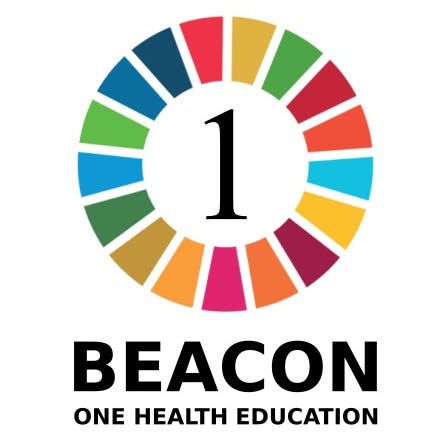Towards a shared scientific endeavour: coordinating our current round of Horizon Europe proposals for health, education, and structural change
Horizon Europe health call proposals, invitation to join our strategic coordination meeting this Wednesday, 30 July
This Wednesday, 30 July, from 09:00 to 11:00 Central European Time (Madrid), we will convene the first strategic meeting dedicated to preparing our Horizon Europe submissions, with the official deadline set for 16 September, now less than seven weeks away. This marks the beginning of an intensive effort to consolidate institutional readiness, affirm scientific leadership, and assemble a coherent and capable collective. What we intend is not simply to submit projects for funding, but to activate a shared commitment to bring tangible, open, and lasting benefit to the children and schools we collectively serve. The call is open to all collaborators, and this is a direct invitation to those who have not yet stepped in to do so now, especially young, responsible talent and those most in need of meaningful inclusion in scientific networks and structural transformation.
Meeting access has been arranged as follows:
Google Meet link: https://meet.google.com/ydn-veye-rbi
Phone (US): +1 617 675 4444, PIN: 758 852 721 8305#
Full access details: https://tel.meet/ydn-veye-rbi?pin=7588527218305
Background and coordination briefing:
This coordination moment is not just about proposal design, but about reinforcing the architecture of our shared action. At this stage, four interrelated proposals are being shaped. All are conceived as modular and interoperable elements of a larger open scientific effort, anchored in open science best standards, open health as all encompassing sustainable development goal, human values, interdisciplinary, the gathering of evidence, ensuring public accountability, and real-world institutional reform. These proposals integrate longitudinal fieldwork, technology development, legal and ethical foresight, and educational impact. All results, methods, and resources are being designed under open access and open source frameworks, ensuring full public reuse, reproducibility, and equity of access. Our collective capacity to intervene effectively in the areas of health, education, and the environment depends on this foundational openness. There is no other legitimate scientific path forward.
The proposals currently under coordination include the following:
The first focuses on brain health in school environments. It develops structured routines in sleep regulation, physical activity, metabolic balance, and social coherence, aiming to foster measurable improvements in cognition, emotional regulation, and academic performance. These habits and interventions are designed to be taught school-wide, creating living laboratories of embodied health and collective flourishing. Children will learn the biological and behavioural principles underlying their own well-being and will be supported to apply them through everyday practice.
The second targets environmental pollutants and their direct impact on neurodevelopment. It seeks to reduce harmful exposure to toxins through improvements in air, soil, water, and food systems. The scientific rationale is grounded in environmental neurotoxicity and cumulative harm. This proposal is particularly attentive to historically exposed populations, including war-affected regions and neglected rural zones. Where possible, it introduces restorative interventions, clean-up protocols, and legal instruments to secure prevention. Justice in environmental health is treated as both a scientific and moral imperative.
The third addresses mental health in childhood and adolescence through shared decision-making frameworks. Here, pedagogy, care, and legal responsibility intersect to create relational, participatory models of mental health support—moving beyond coercive, reactive, or fragmented service delivery. Families, teachers, professionals, and children are reconfigured as actors within systems of continuity and mutual accountability. This model integrates trauma-informed practice, ethics of care, and evidence-based approaches to distress, while safeguarding autonomy and trust.
The fourth proposal activates internal mentorship and service-learning infrastructures. This initiative introduces structured peer support mechanisms into schools and affiliated services, including through collaboration with higher education institutions. Trainees, future professionals, and community-based mentors are engaged in relational work with children and adolescents, advancing both psychosocial development and institutional resilience. Knowledge transmission, care responsibility, and educational repair become mutually reinforcing processes embedded in lived practice.
All four proposals are intended to operate as a single platform of interlinked work. They respond to overlapping social determinants, and contribute directly to health, educational quality, gender equity, and climate resilience. These are not abstract objectives but measurable targets tied to actual school populations, communities, and institutional partners. Their integration is not theoretical: each proposal is designed to be stacked, cross-validated, and co-evaluated, producing evidence not only of local impact but of system-level reform readiness. This strategic call will be the first of several moments for technical convergence, already the fourth such moment for our network, learning to work together by each new round of consortia formation. Beyond preparing submissions, this is our occasion to strengthen our action through coordinated leadership. We will identify regional and thematic responsibilities, prepare for structural co-supervision, and align our implementation capacities. New participants are welcome, but only if they are ready to work transparently, ethically, and with clear responsibility. This is not a passive invitation, but a direct call to those who have the expertise and the commitment to help us deliver what the moment demands. At least one excellent proposal with winning chances is expected to be submitted.
In case the proposals are not ready on time, we will hold. We are building an action network capable of protecting and advancing the lives of children, especially those most systematically excluded from health, care, and education. The work begins here. The summer is before us. The alignment is present. The urgency is clear. One excellent winner proposal may be all we need to launch a long-term transformation.
Thanks for joining in, for sharing this invitation, and being here.




